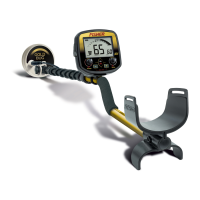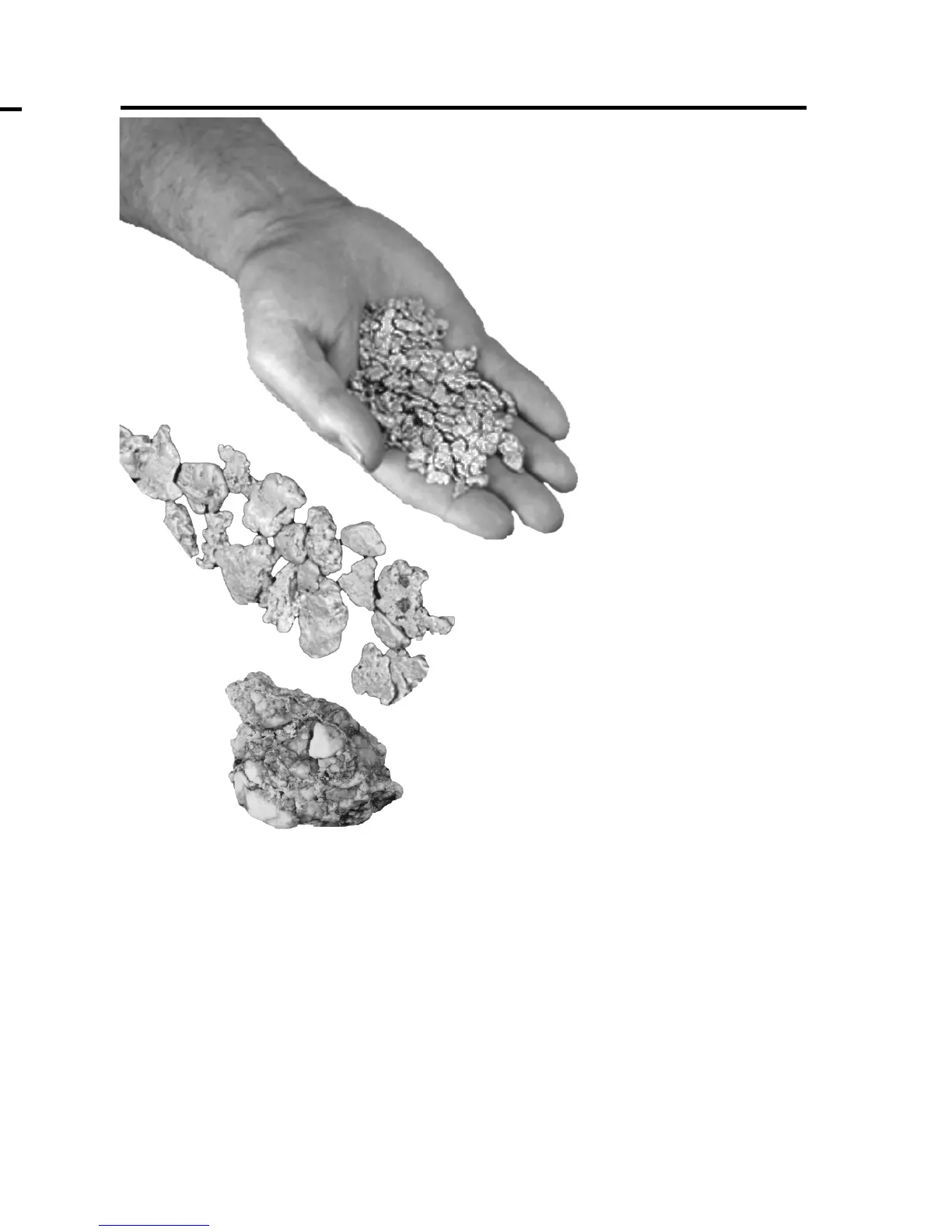10
27
THE BASICS OF METAL DETECTING
GOLD PROSPECTING
A hobby metal detector is intended for locating buried metal objects. When
searching for metals, underground or on the surface, you have the following
challenges and objectives:
1. Ignoring signals caused by ground minerals.
2.
Ignoring signals caused by metal objects that you do not want to find,
like pull-tabs.
3. Identifying a buried metal object before you dig it up.
4. Estimating the size and depth of objects to facilitate digging them up.
5. Eliminating the effects of electromagnetic interference from other
electronic devices.
Your Gold Bug metal detector is designed with these things in mind.
1. Ground Minerals
All soils contain minerals. Signals from ground minerals can interfere with
the signals from metal objects you want to find. All soils differ, and can
differ greatly, in the type and amount of ground minerals present. You
therefore want to
calibrate the detector to the specific ground conditions
where you are hunting. The detector incorporates both automated and
manual ground balancing features which will eliminate false signals from
most types of soils. To maximize the detector’s target identification
accuracy and depth of detection, use the GROUND GRAB (GG) function
to calibrate the detector to the ground where you are searching. See the
section on GROUND BALANCING for details.
The Basics continued on next page
Gold Prospecting continued on next page
In the United States, gold is found in many places in the
western states, Alaska, and in a few localities in the
Appalachians. The old saying "Gold is where
you find it," means that to find gold, you
should look in areas where the yellow
metal is known to be present.
Hillsides are the best areas for
gold prospecting using a
metal detector, because
hillsides cannot be
cleaned out by panning
and dredging the way
streams can. Also,
gold on hillsides, not far
from its source vein,
tends to be larger, and hence more
readily detected, than alluvial (placer)
gold which tends to get pounded to
pieces and worn away as it rolls along
the streambed with gravel during floods.
Gold is valuable because it is a scarce
commodity. Even in a good gold producing
area, you will often spend an entire day
without finding any gold. Meanwhile you
will dig bits and pieces of other metal--
birdshot, shells and bullets from hunting and target
practice, bits of rusted barbed wire, chips off shovels and other mining tools,
rusted tin cans, etc. Hot rocks -- rocks containing concentrations of iron
oxides that sound like metal when you pass over them -- are also a nuisance
in many gold areas. Discrimination is usually ineffective because the loss of
sensitivity resulting from discrimination is enough to cause those little nuggets
to vanish. If you have gone many hours without finding gold and are
wondering if there is something wrong with your metal detector or how you are
using it, the most important clue is this: if you are digging
tiny pieces of trash
metal, then if gold were present you would have found small gold pieces too!

